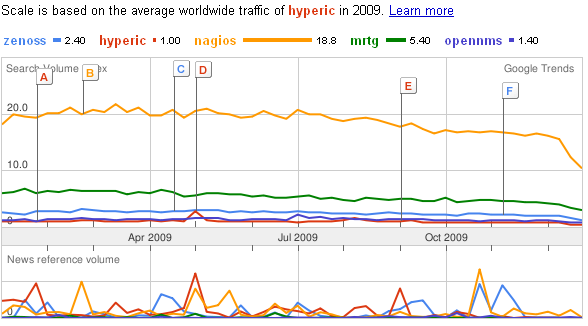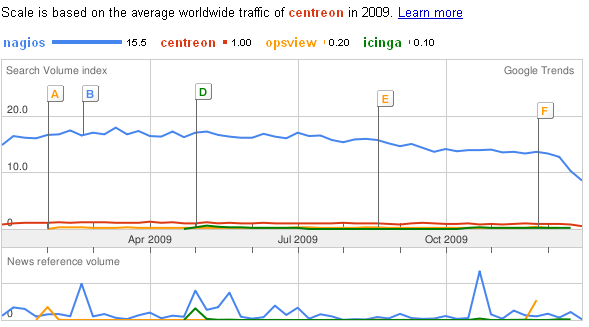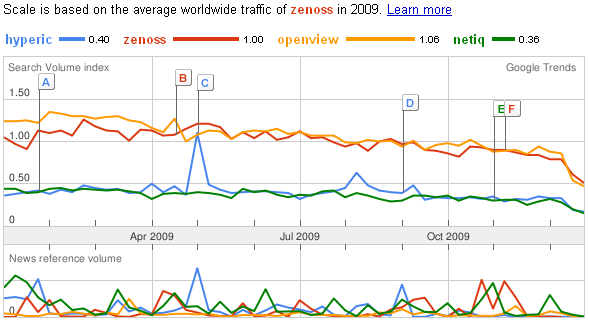Open source network management buzz comparison 2009
I did a comparison of the buzz for the leading open source network management tools in 2008 so I thought it would be interesting to do the same comparison for 2009 and see what’s changed.
As I did last year, I’ve compared the number of searches for the project name using Google Trends. As always, this post is not intended to be indicative of the usefulness of a particular tool to your requirements.
Open Source Network Management System Trends
Firstly a comparison of the major players in open source network management: Zenoss, Hyperic, Nagios, MRTG and OpenNMS. The most striking thing about the graph to me is the decline in searches for Nagios. From the middle of 2009 things have been declining quite steeply. MRTG has been declining though it just looks like a continuation of the decline evident for the last few years.

Open Source Network Management System Trend 2009
A Comparison of the Nagios Ecosystem
Whilst the above graph showed a reduction in the relative number of searches for Nagios, perhaps the Nagios ecosystem graph can explain it. Icinga, a Nagios fork, was created during 2009 and may be responsible for at least some of the decline. Icinga appears on the graph during late April and has a steady presence throughout the rest of 2009 save for a small period during the Christmas break.

A Comparison of the Nagios Ecosystem 2009
Open vs Closed Network Management Systems
Given that 2009 was a year of recession in many countries, perhaps it won’t surprise too many to see so many of both the commercial open source and proprietary tools trending downwards. I suspect that 2009 was a tough year for winkling money out of IT budgets.

Open vs Closed Network Management Systems 2009
Conclusion
All in all an interesting year. Apart from the Icinga/Nagios episode it seems odd that none of the tools has made significant progress during 2009. If open source tools were to make a move against their proprietary cousins you would assume it would be 2009 given the economic background. Budgets have been tight, so why haven’t open source tools made progress in these recessionary times?

